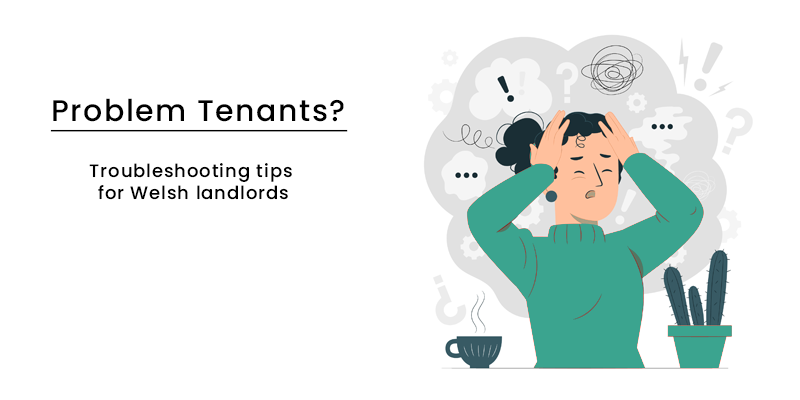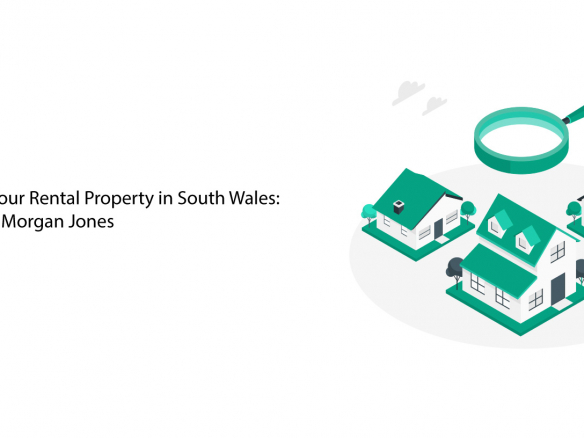Are you having problems with your tenants in Wales? Most landlords experience issues with tenants at some point. Here are our tips on how to handle some of the most common issues.
Being a landlord in Wales has its ups and downs, and when problems occur with tenants it can be costly.
Ending tenancies for problem tenants in Wales
If problems with your tenants in Wales escalate, you may want to evict the tenants. Most tenancies are assured shorthold tenancies, unless agreed otherwise in writing. Under an assured shorthold tenancy, the minimum length for the tenancy is six months, but you can agree a longer fixed term if preferred. Once the fixed term has ended you can currently end the tenancy at any time by giving the tenant two months’ written notice. You can evict tenants on an assured short hold tenancy using a Section 21 or Section 8 notice.
*Under the Renting Homes (Wales) Act 2016 there will be a six month notice requirement for a landlord to end a tenancy when the tenant is not at fault, and you will not be able to issue such a possession notice in the first six months of the tenancy. In other words, once you let to a tenant, barring any emergency or a serious breach of contract on their part, you’ve probably got them in your property for a minimum of a year.
What if I need to evict a problem tenant in Wales early?
Certain situations give you grounds to end the tenancy at any time. These include rent arrears, repossession by your mortgage company, disrepair or damage caused by the tenant, late rental payments, breach of contract (such as having pets or smoking in the house), anti-social behaviour, and tenants having provided false information to secure the tenancy. You can also evict tenants within the fixed term period if you need to carry out vital repairs because the property is not suitable for habitation.
*Under the Renting Homes (Wales) Act 2016, the law will protect tenants from “retaliatory evictions” whereby a landlord evicts a tenant after they request repairs or work to make the property fit for human habitation.
What if a problem tenant in Wales won’t leave?
If a tenant refuses to leave you can apply to the county court to get them evicted. Here’s the government advice on possession orders.
What if a problem tenant in Wales abandons the property?
If a tenant abandons a property before the end of their tenancy without letting you know, you can’t legally enter the property without a court possession order, unless it’s for an emergency such as a fire, a gas, electrical or plumbing emergency or evidence of crime being committed there. If you do have to enter the property in such circumstances, take an independent witness with you to create a written record of your reasons for the visit and what happened during the visit.
If there are no emergency grounds for entering the property, your first step should be to try getting in touch with the tenant to ask if they have ended their tenancy and request the keys back: if they confirm the end of the tenancy in writing, you can enter the property and proceed with reletting it.
If you can’t get in touch with the tenant, you need to collect evidence that they have abandoned the property. See if you can get statements from the tenant’s relatives or neighbours and put these together with other evidence to strengthen your case for a court possession order. Non-payment of rent and evidence that the tenant has removed their belongings from the property can also count as evidence.
*Note that under the Renting Homes (Wales) Act 2016, from July 15 2022, you will be able to repossess an abandoned property without needing a court order, after serving a four week warning notice and carrying out investigations to satisfy yourself the property is abandoned.
What if a tenant wants to leave a joint tenancy?
From July 15 2022, under the Renting Homes (Wales) Act 2016, it will be possible to end part of a joint tenancy and add a new tenant without having to end one contract and start another.
Want someone to take the strain for you?
At Morgan Jones we have decades of experience in managing properties and problem tenants in Wales and we can handle all tenant-related complications for you. Get in touch today to find out more.
Contains public sector information licensed under the Open Government Licence v3.0.








Join The Discussion